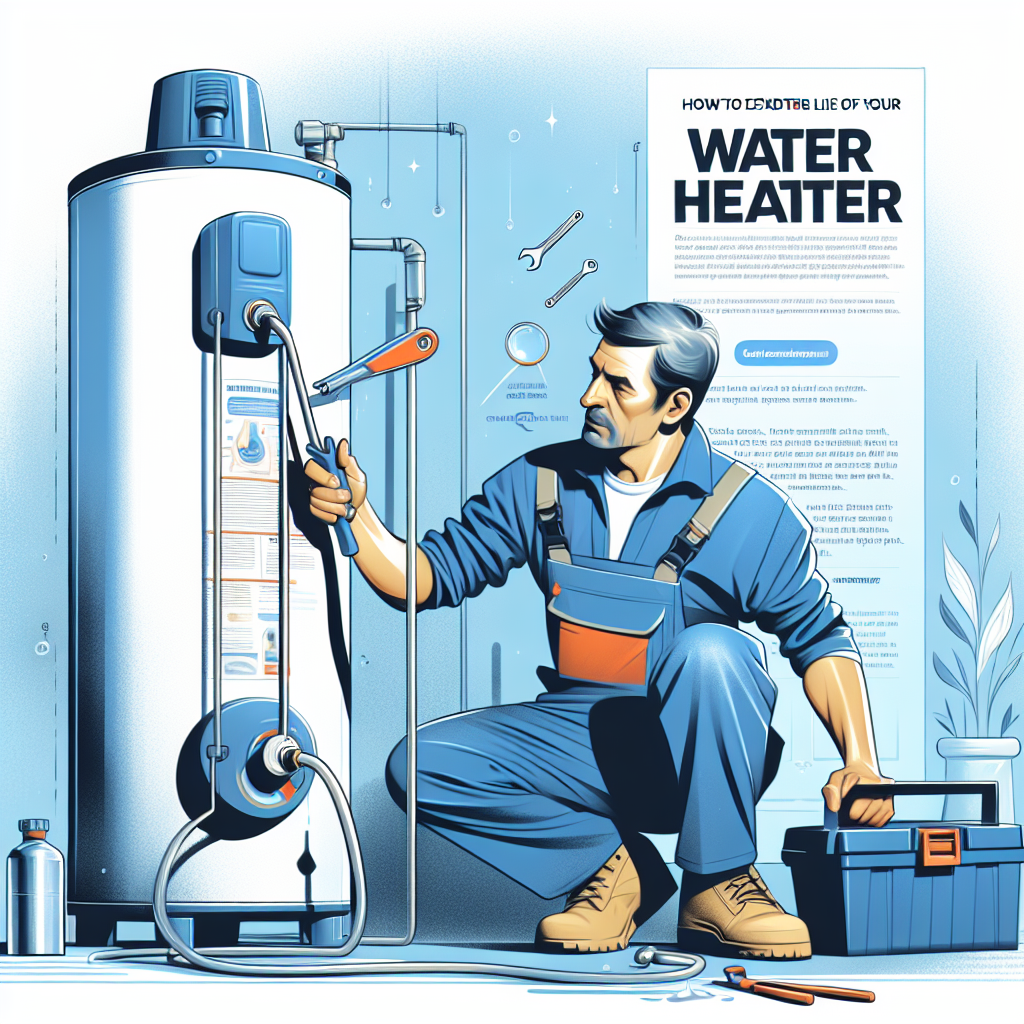Your water heater is a crucial part of your home’s daily routine, providing the hot water you need for showers, dishes, and laundry. Yet, many homeowners take this essential appliance for granted, leading to premature breakdowns and costly replacements. Extending the life of your water heater isn’t just about saving money; it’s about ensuring comfort and convenience in your home. In this article, we’ll explore practical tips to help you maximize the lifespan of your water heater.
Understanding Your Water Heater
Before diving into maintenance tips, it’s important to understand the basic types of water heaters present in homes today. The two most common types are:
- Tank Water Heaters: These store hot water in a tank. They are typically less efficient but can provide hot water on demand.
- Tankless Water Heaters: Also known as on-demand water heaters, these heat water directly without the use of a storage tank, providing a continuous supply of hot water.
Regardless of the type you have, knowing how your water heater works can empower you to keep it in good condition.
1. Regular Maintenance is Key
Just like your car, your water heater needs regular maintenance to perform efficiently. Schedule an annual inspection with a qualified technician to check for any potential issues. A professional can flush the tank, inspect the pressure relief valve, and ensure other components are functioning properly.
DIY Maintenance Tasks
If you prefer a hands-on approach, here are a few DIY maintenance tasks you can handle:
-
Flush the Tank: Sediment builds up in the tank over time, which can reduce efficiency and increase wear. Flushing your tank at least once a year helps eliminate this buildup.
- Check the Anode Rod: This rod helps prevent rust and corrosion inside your tank. Every few years, inspect the anode rod, and replace it if it’s significantly corroded.
2. Set the Right Temperature
Many homeowners don’t realize that the temperature setting on their water heater can significantly affect its lifespan. Most experts recommend setting the thermostat to 120°F. This not only prevents scalding but also reduces energy consumption and minimizes sediment buildup.
Use Insulation
Insulating your water heater and the first few feet of hot and cold water pipes can help maintain the temperature. This reduces the workload on your heater, promoting energy efficiency and longevity.
3. Monitor Water Quality
The quality of your water can also impact the life of your water heater. If you have hard water (water with high mineral content), consider installing a water softener. Hard water can lead to significant sediment buildup in your tank, resulting in inefficiency and potential damage.
4. Watch for Signs of Trouble
Being proactive about potential issues can save you from costly repairs down the road. Keep an eye out for:
-
Unusual Noises: Rumbling or banging sounds could indicate sediment buildup or potential issues with temperature control.
-
Leaks: Any moisture around the water heater is a cause for concern. Address leaks immediately to prevent further damage.
- Fluctuating Water Temperature: If your water isn’t staying consistently hot, it may signal a malfunction.
5. Know When to Replace
Even with the best maintenance, water heaters have a finite lifespan, typically around 8-12 years for tank models and up to 20 years for tankless models. If your water heater is nearing this age, consider replacement before a breakdown occurs. Invest in a high-efficiency model to save money on energy bills and enjoy long-term reliability.
Real-Life Experience: A Homeowner’s Story
Meet Sarah, a busy mom of three. She decided to take control of her household maintenance and keep her water heater in peak condition. By scheduling annual check-ups, regularly flushing the tank, and ensuring her water heater was set to 120°F, she extended its life significantly. "I hadn’t realized how little attention I paid to my water heater," Sarah admits. "Now, I’m confident I won’t face any sudden breakdowns, and it’s one less thing to worry about in our hectic home life."
Conclusion: Invest in Your Comfort
Extending the life of your water heater isn’t just about maintenance; it’s an investment in your home’s comfort. By staying diligent and proactive, you can enjoy reliable hot water for years to come. Implement these tips, monitor your water heater’s performance, and remember that a little effort can go a long way in saving you time, money, and stress.
By following these strategies, you’ll not only enhance the lifespan of your water heater, but you’ll also contribute to a more efficient household. Happy maintenance!


